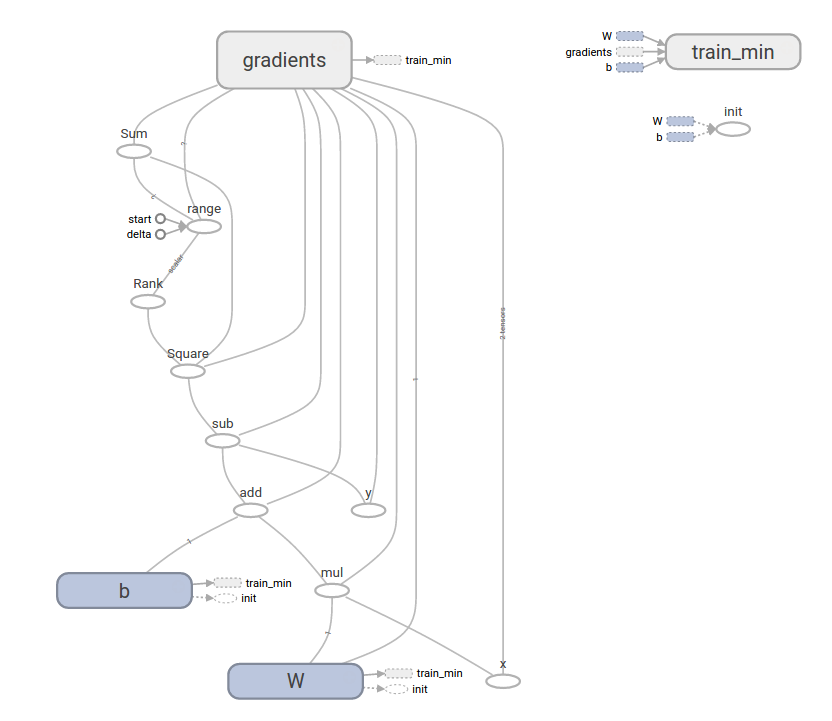diff options
Diffstat (limited to 'tensorflow/docs_src/get_started/get_started.md')
| -rw-r--r-- | tensorflow/docs_src/get_started/get_started.md | 23 |
1 files changed, 12 insertions, 11 deletions
diff --git a/tensorflow/docs_src/get_started/get_started.md b/tensorflow/docs_src/get_started/get_started.md index d1c9cd696c..17d07cc582 100644 --- a/tensorflow/docs_src/get_started/get_started.md +++ b/tensorflow/docs_src/get_started/get_started.md @@ -295,7 +295,6 @@ next section. The completed trainable linear regression model is shown here: ```python -import numpy as np import tensorflow as tf # Model parameters @@ -305,14 +304,16 @@ b = tf.Variable([-.3], dtype=tf.float32) x = tf.placeholder(tf.float32) linear_model = W * x + b y = tf.placeholder(tf.float32) + # loss loss = tf.reduce_sum(tf.square(linear_model - y)) # sum of the squares # optimizer optimizer = tf.train.GradientDescentOptimizer(0.01) train = optimizer.minimize(loss) + # training data -x_train = [1,2,3,4] -y_train = [0,-1,-2,-3] +x_train = [1, 2, 3, 4] +y_train = [0, -1, -2, -3] # training loop init = tf.global_variables_initializer() sess = tf.Session() @@ -329,9 +330,9 @@ When run, it produces W: [-0.9999969] b: [ 0.99999082] loss: 5.69997e-11 ``` -Notice that the loss is a very small number (close to zero). If you run this -program your loss will not be exactly the same, because the model is initialized -with random values. +Notice that the loss is a very small number (very close to zero). If you run this +program, your loss may not be the exact same because the model is initialized +with pseudorandom values. This more complicated program can still be visualized in TensorBoard  @@ -394,8 +395,8 @@ print("eval metrics: %r"% eval_metrics) ``` When run, it produces ``` - train metrics: {'global_step': 1000, 'loss': 4.3049088e-08} - eval metrics: {'global_step': 1000, 'loss': 0.0025487561} +train metrics: {'loss': 1.2712867e-09, 'global_step': 1000} +eval metrics: {'loss': 0.0025279333, 'global_step': 1000} ``` Notice how our eval data has a higher loss, but it is still close to zero. That means we are learning properly. @@ -425,7 +426,7 @@ def model_fn(features, labels, mode): # Build a linear model and predict values W = tf.get_variable("W", [1], dtype=tf.float64) b = tf.get_variable("b", [1], dtype=tf.float64) - y = W*features['x'] + b + y = W * features['x'] + b # Loss sub-graph loss = tf.reduce_sum(tf.square(y - labels)) # Training sub-graph @@ -464,8 +465,8 @@ print("eval metrics: %r"% eval_metrics) ``` When run, it produces ``` -train metrics: {'global_step': 1000, 'loss': 4.9380226e-11} -eval metrics: {'global_step': 1000, 'loss': 0.01010081} +train metrics: {'loss': 1.227995e-11, 'global_step': 1000} +eval metrics: {'loss': 0.01010036, 'global_step': 1000} ``` Notice how the contents of the custom `model_fn()` function are very similar |
